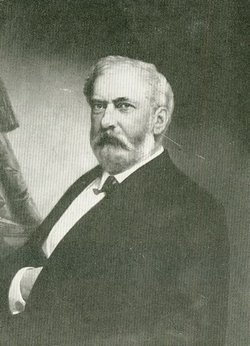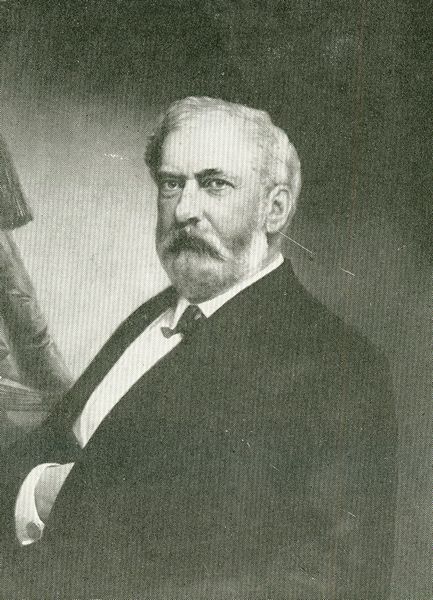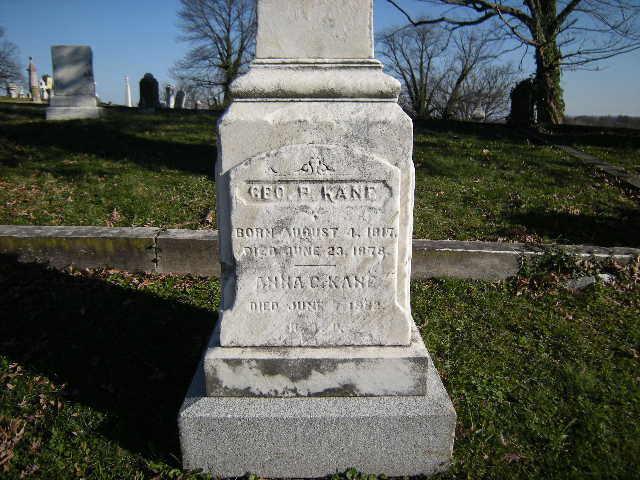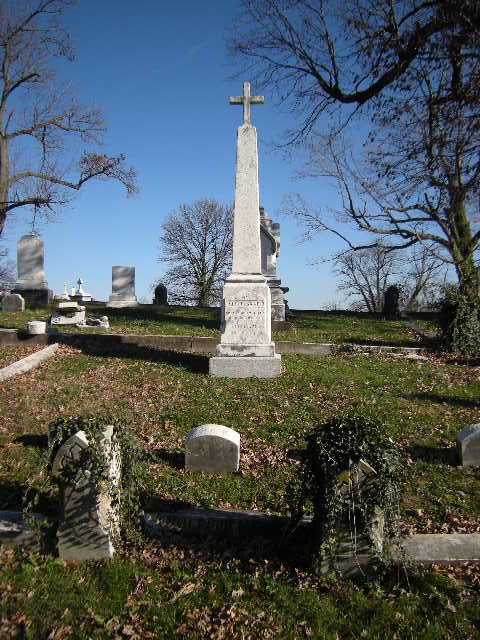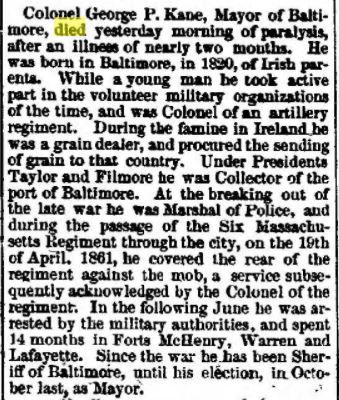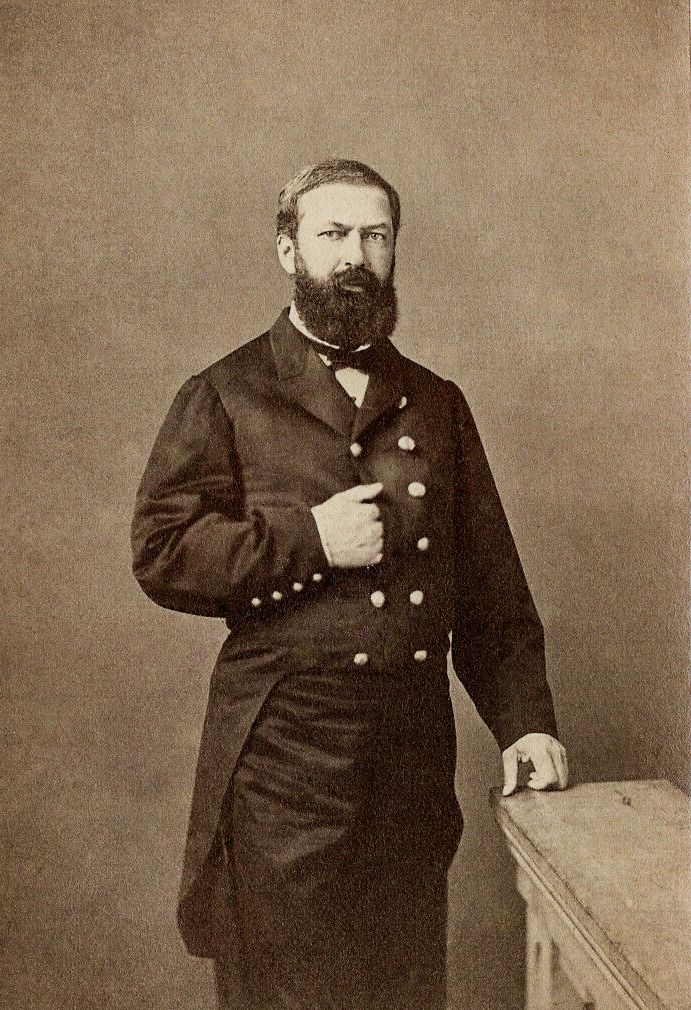Special Dispatch to the New-York Times.
June 24, 1878, Wednesday
Page 1
BALTIMORE, June 23. Mayor Kane died this morning at 42 minutes past 3 o'clock. George P. Kane was born and educated in Baltimore. His father. John M. Kane, an Irishman by birth, came to this country in 1798, and in the year 1812 he organized a volunteer company, of which he was made Captain.....
George Proctor Kane was mayor of Baltimore City from November 1877 to June 1878, when he died in office of Bright's disease, a kidney disorder. His brief time in City Hall saw few accomplishments, and his civic profile was indelibly forged by his actions in the spring of 1861, when he served as Baltimore's Chief of Police.
Born in Baltimore in 1820, of Presbyterian parents from Northern Ireland, Kane was educated in Baltimore and worked in the grain and grocery business as a young man. He became active in the Whig Party, worked for the nomination of Whig presidential candidate Henry Clay in 1844 and, during the Irish Potato Famine, participated in relief work as president of the Hibernian Society. He married Ann Griffith of Dorchester County; they were childless.
Early Appointments
Kane held positions in the Independent Grays and the Montgomery Guards, both military organizations, becoming a colonel in the First Maryland Regiment of Artillery. His work with Baltimore's volunteer fire department lead to the city's first paid steam fire department. In 1848, he became co-owner of the Olympic Theater at Charles and Baltimore Streets.
President Millard Fillmore, a Whig, appointed Kane Collector of the Port of Baltimore, a position he held until 1852, switching to the Democratic Party. He became Baltimore's "marshal" of police in 1858, at an annual salary of $1,500, and by 1861 presided over a modern force of 350 officers. In February 1861, with rumors of a plot to assassinate Abraham Lincoln as he passed through Baltimore en route to Washington, Kane helped the President-elect slip through the city at night.
Civil War Unrest
In April 1861, following the surrender of Fort Sumter to the Confederacy, Lincoln called upon northern governors for 75,000 troops to protect Washington, D.C., and suppress the rebellion. The troops would arrive in Baltimore by rail, their cars unhooked from the locomotives and pulled by horses through city streets to another station for the final leg to Washington. On Friday, April 19, as 35 troop cars steamed into the President Street Station, a hostile crowd gathered, as word of this military presence spread through the city.
Men, ordered to disembark and move at the double-quick, were quickly surrounded by the shouting mob throwing cobblestones. By the time muskets discharged, Police Chief Kane arrived with a contingent of men, and by many accounts was, with Mayor George W. Brown, instrumental in containing a tragedy that became is known the Baltimore Riot, or Pratt Street Riot, with 12 Baltimoreans and four soldiers dead.
For three days, lawlessness driven by smoldering anger against the federal government threatened to propel Maryland into the Confederacy. Mayor Brown and Gov. Thomas H. Hicks worked frantically with President Lincoln to avoid having more troops pass through Maryland. Kane, working to protect Baltimore, telegraphed legislative leaders in Frederick City to plead for men to fight the northern soldiers, proclaiming, "Fresh hordes will be down on us to-morrow. We will fight them and whip them, or die."
Kane Caught in Dragnet
When the Secretary of War Edwin M. Stanton authorized arrests of Maryland lawmakers, editors, and prominent citizens suspected of disloyalty, Kane was caught in the dragnet. The police chief, arrested on June 27, likely fell victim to his imprudent telegram and association with other high-ranking Baltimore officials and citizens suspected of disloyalty. Mayor Brown was among those arrested and imprisoned.
Kane was sent briefly to Fort McHenry, then to Fort Warren in Boston Harbor, where he was imprisoned for 14 months with a number of Baltimoreans. A condition of his release in autumn 1862 was that he go south, and so he became a tobacco manufacturer in Richmond, Virginia. At war's end, still a Democrat, the former police chief returned to Baltimore to again serve his native city; in 1870 on the Jones Falls Commission and in 1871-1873 as its sheriff. He forever proclaimed his fealty to the United States, and on May 3, 1861, penned a detailed account of the riot that justified his actions on that day.
Kane in death was widely eulogized by the city he had served. A number of civic groups to which he had belonged held meetings to honor him. Funeral services at St. Ignatius Church preceded burial at "Bonnie Brae" cemetery on Frederick Road, a procession that included almost 200 policemen, 80 carriages, and a number of funeral marches. Among his distinguished pallbearers was his friend, former Mayor Brown, then a judge of the Criminal Court.
Special Dispatch to the New-York Times.
June 24, 1878, Wednesday
Page 1
BALTIMORE, June 23. Mayor Kane died this morning at 42 minutes past 3 o'clock. George P. Kane was born and educated in Baltimore. His father. John M. Kane, an Irishman by birth, came to this country in 1798, and in the year 1812 he organized a volunteer company, of which he was made Captain.....
George Proctor Kane was mayor of Baltimore City from November 1877 to June 1878, when he died in office of Bright's disease, a kidney disorder. His brief time in City Hall saw few accomplishments, and his civic profile was indelibly forged by his actions in the spring of 1861, when he served as Baltimore's Chief of Police.
Born in Baltimore in 1820, of Presbyterian parents from Northern Ireland, Kane was educated in Baltimore and worked in the grain and grocery business as a young man. He became active in the Whig Party, worked for the nomination of Whig presidential candidate Henry Clay in 1844 and, during the Irish Potato Famine, participated in relief work as president of the Hibernian Society. He married Ann Griffith of Dorchester County; they were childless.
Early Appointments
Kane held positions in the Independent Grays and the Montgomery Guards, both military organizations, becoming a colonel in the First Maryland Regiment of Artillery. His work with Baltimore's volunteer fire department lead to the city's first paid steam fire department. In 1848, he became co-owner of the Olympic Theater at Charles and Baltimore Streets.
President Millard Fillmore, a Whig, appointed Kane Collector of the Port of Baltimore, a position he held until 1852, switching to the Democratic Party. He became Baltimore's "marshal" of police in 1858, at an annual salary of $1,500, and by 1861 presided over a modern force of 350 officers. In February 1861, with rumors of a plot to assassinate Abraham Lincoln as he passed through Baltimore en route to Washington, Kane helped the President-elect slip through the city at night.
Civil War Unrest
In April 1861, following the surrender of Fort Sumter to the Confederacy, Lincoln called upon northern governors for 75,000 troops to protect Washington, D.C., and suppress the rebellion. The troops would arrive in Baltimore by rail, their cars unhooked from the locomotives and pulled by horses through city streets to another station for the final leg to Washington. On Friday, April 19, as 35 troop cars steamed into the President Street Station, a hostile crowd gathered, as word of this military presence spread through the city.
Men, ordered to disembark and move at the double-quick, were quickly surrounded by the shouting mob throwing cobblestones. By the time muskets discharged, Police Chief Kane arrived with a contingent of men, and by many accounts was, with Mayor George W. Brown, instrumental in containing a tragedy that became is known the Baltimore Riot, or Pratt Street Riot, with 12 Baltimoreans and four soldiers dead.
For three days, lawlessness driven by smoldering anger against the federal government threatened to propel Maryland into the Confederacy. Mayor Brown and Gov. Thomas H. Hicks worked frantically with President Lincoln to avoid having more troops pass through Maryland. Kane, working to protect Baltimore, telegraphed legislative leaders in Frederick City to plead for men to fight the northern soldiers, proclaiming, "Fresh hordes will be down on us to-morrow. We will fight them and whip them, or die."
Kane Caught in Dragnet
When the Secretary of War Edwin M. Stanton authorized arrests of Maryland lawmakers, editors, and prominent citizens suspected of disloyalty, Kane was caught in the dragnet. The police chief, arrested on June 27, likely fell victim to his imprudent telegram and association with other high-ranking Baltimore officials and citizens suspected of disloyalty. Mayor Brown was among those arrested and imprisoned.
Kane was sent briefly to Fort McHenry, then to Fort Warren in Boston Harbor, where he was imprisoned for 14 months with a number of Baltimoreans. A condition of his release in autumn 1862 was that he go south, and so he became a tobacco manufacturer in Richmond, Virginia. At war's end, still a Democrat, the former police chief returned to Baltimore to again serve his native city; in 1870 on the Jones Falls Commission and in 1871-1873 as its sheriff. He forever proclaimed his fealty to the United States, and on May 3, 1861, penned a detailed account of the riot that justified his actions on that day.
Kane in death was widely eulogized by the city he had served. A number of civic groups to which he had belonged held meetings to honor him. Funeral services at St. Ignatius Church preceded burial at "Bonnie Brae" cemetery on Frederick Road, a procession that included almost 200 policemen, 80 carriages, and a number of funeral marches. Among his distinguished pallbearers was his friend, former Mayor Brown, then a judge of the Criminal Court.
Gravesite Details
Death Date is Burial Date.
